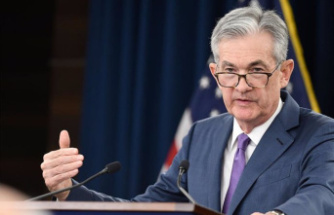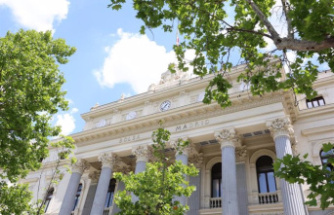Property Tax Independence Act
What would it do?
• Eliminate school property taxes and shift to an increased personal income tax and expanded sales and use tax.
• Districts would be allowed to keep a portion of existing school property tax to pay off existing debt.
What would change?
• Increase sales and use tax by 1 percentage point: 6 percent to 7 percent in Westmoreland County; 7 percent to 8 percent in Allegheny County, where purchases are taxed an extra 1 percent.
• Broaden the base of the state sales tax to include more services and products. Necessities and business-to-business transactions would continue to be exempt from the sales tax.
• Increase the state personal income tax from 3.07 percent to 4.95 percent.
How much would the new plan need to replace?
According to estimates from the state Independent Fiscal Office, revenue generated by school property taxes would total:
• FY 2016-17: $13.8 billion
• FY 2017-18: $14.2 billion
• FY 2018-19: $14.7 billion
• FY 2019-20: $15.3 billion
What some local lawmakers are saying
“School districts are going to get exactly what they're getting now.”
— Rep. Rick Saccone
R-Washington and Allegheny, who co-sponsored a version of the House bill last session. He said districts are not controlling their biggest costs — salaries, pensions and benefits — and that they should not worry about insufficient funding under this plan.
“I personally don't think it can work the way it's designed.”
— Sen. Randy Vulakovich
R-Allegheny, who voted for S.B. 76 in the past but said he does not support it now.
“For school districts that have existing debt, they don't actually have to eliminate the property tax, on the seniors.”
— Rep. Eric Nelson
R-Westmoreland, who supports the concept of eliminating property taxes but is concerned that this plan could actually cost taxpayers more — especially seniors, who might end up paying more money for health care services because of the expanded sales and use tax.
Sign up for one of our email newsletters.
Updated 9 minutes ago
Local supporters of eliminating school property taxes think spending by districts is out of control: Schools are overstaffed, class sizes are too small and pensions are too big.
They say the responsibility to pay for those costs falls on homeowners — an expanding, aging population who increasingly cannot afford to stay in their homes.
“But I want to stress the word ‘everybody' — not just the property owners, everybody — has the responsibility,” said Catherine Fike, a resident of Westmoreland County's Southmoreland School District who is working to raise local support for legislation to abolish school property taxes.
Complaints about high taxes to fund schools and discussions about how to address them aren't new.
The Property Tax Independence Act was most recently introduced in both the state House and Senate in the 2015-16 session.
The legislation proposed eliminating school property taxes on residential and commercial property and recovering that revenue — about $14 billion per year, according to the state Independent Fiscal Office — by raising the sales tax and personal income tax across the state. School districts could continue to collect property taxes to pay off existing debt under the proposal.
Sen. David Argall, R-Berks and Schuylkill, was a primary sponsor of the 2015 legislation and plans to reintroduce it in the coming weeks. He said he thinks the Senate finally has the votes to send a bill to the House.
The legislation last came to a vote in November 2015 but was defeated when the lieutenant governor cast a tie-breaking vote.
Democratic House Minority Leader Rep. Frank Dermody, D-Allegheny and Westmoreland, does not think a bill would have a chance of passing in the House.
“It's an incredibly huge tax hike that doesn't solve the problem,” he said.
Other than adjusting timelines for implementing the proposed changes, Argall said increases to sales and income taxes would remain the same as in previous proposals. Personal income tax would increase from 3.07 percent to 4.95 percent. The state sales and use tax would increase from 6 percent to 7 percent, while also broadening the state sales tax base to include more products and services. In Allegheny County, where an additional 1 percent local tax is added to purchases, the sales and use tax would increase from 7 percent to 8 percent.
“It's a major change. There's nothing tentative about this,” Argall said. “And that's the way the grass-roots activists from all across the state wrote it.”
Grass-roots supporters such as David Baldinger of Reading, who has worked with lawmakers to push the legislation forward, think this plan could improve the way schools are financed while easing the burden on taxpayers.
“There are so many people across the state who cannot afford their property taxes right now,” Baldinger said.
Sen. Don White, R-Indiana, said he has observed that struggle among his constituents.
“I know in my area, the state's getting older every year,” he said. “There are a lot of people that hopefully paid off their mortgage and still feel like they never own their homes.”
Critics of the plan agree that something needs to be done to address concerns about steep property taxes and to find more efficient ways to finance schools. But they're also worried that if new proposals look anything like what has been suggested in the past, schools will end up with new problems.
The Fox Chapel Area School District parent organization in late January held what organizers called an “emergency public meeting” to discuss the proposal. The group listed diminished local control, potential for inequity across districts and frozen school budgets in the face of rising mandated costs as some of their top concerns.
Fox Chapel Superintendent Gene Freeman, like several school officials across Allegheny and Westmoreland counties, wondered if the plan to replace property tax with increased sales and income taxes would be feasible.
“We're not proposing that property taxes are the best way to fund school districts,” Freeman said. “We're saying this is not going to work.”
If spending slows down, like it did during the 2008 recession, it is unclear how the state would fill the $14 billion void once covered by property taxes, said Ed Fuller, associate professor of education policy studies at Penn State. While revenue generated by property taxes is relatively stable and predictable, sales and income tax revenue depends on the economy, he said.
“The big deal to me is what happens if we have no property tax, so all the revenue is coming from sales and income tax? What happens when the next recession hits?” Fuller said.
The Pennsylvania Budget and Policy Center, a liberal-leaning think tank, said it is not clear whether the state would be able to break even.
“When you switch to a sales and income tax, you don't necessarily pick up that same revenue,” said Mark Price, the center's research director.
In addition to concerns about how money would be raised, critics worry about how the dollars would be distributed.
“This proposal to eliminate these property taxes, or the greater majority of them, takes away local financial control of the district,” said Peggy Gillespie, Kiski Area School District business manager. “The state is basically dictating how our local district should be run, or financially how the district should be run.”
Under this proposal, school boards would not have the ability to issue debt without a referendum approved by taxpayers, she said.
“Every school district has elected officials,” said Dan Lucovich, a Freeport Area School District board member. “We don't need the state to interfere.”
Critics also voiced concerns about solving persisting problems, such as rising mandated costs.
“When I look at retirement, special education, charters — that's roughly 19 percent of our budget,” said Cheryl Walters, superintendent of Derry Area schools.
As those mandated costs continue to grow each year, Walters worries initiatives such as the district's early childhood education programs, which support its youngest students in building a foundation in skills such as reading and math, could be among the first to be cut if funding is disrupted.
“You can't do that out of good wishes and dreams,” Walters said. “You have to have the resources to be effective.”
Bill Kerr, Norwin School District superintendent, raised similar concerns about pension costs, noting that contribution rates are expected to increase. Pensions cost the district about $9.5 million a year and will increase to $10.3 million in July.
“We will not be able to sustain quality education with those kinds of rates,” Kerr said.
According to Jeffrey Ammerman, director of member assistance at the Pennsylvania Association of School Business Officials, this plan also could result in inequity. Previous versions promised dollar-for-dollar replacement of any money the district collected through property tax but also allowed districts to continue collecting property taxes to pay off existing debt.
As a result, wealthy districts with high property taxes and little debt are likely to benefit, Ammerman said. He doesn't think the same would be true for poorer areas.
“They wouldn't see any relief, or very little relief, in the short term,” Ammerman said, noting that the association's analysis showed that some districts may still need to levy more than 80 percent of existing taxes under the proposed plan to pay off existing debt.
Sen. Jim Brewster, D-Allegheny and Westmoreland, acknowledged the need to address this issue.
Brewster co-sponsored the bill last year because taxpayers wanted tax reform, he said. Now, he hopes that it will start what he said is an important conversation about how to improve school funding and maintain the stability of the public school system.
“There are some people in some of the poorer school districts who are really going to be hurt if we don't do this correctly,” Brewster said.
Jamie Martines and Brian Rittmeyer are Tribune-Review staff writers. Reach them at jmartines@tribweb.com or brittmeyer@tribweb.com.
Our editors found this article on this site using Google and regenerated it for our readers.













